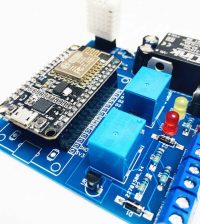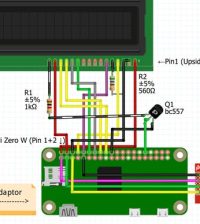- makeITcircular 2024 content launched – Part of Maker Faire Rome 2024Posted 2 weeks ago
- Application For Maker Faire Rome 2024: Deadline June 20thPosted 2 months ago
- Building a 3D Digital Clock with ArduinoPosted 7 months ago
- Creating a controller for Minecraft with realistic body movements using ArduinoPosted 7 months ago
- Snowflake with ArduinoPosted 8 months ago
- Holographic Christmas TreePosted 8 months ago
- Segstick: Build Your Own Self-Balancing Vehicle in Just 2 Days with ArduinoPosted 8 months ago
- ZSWatch: An Open-Source Smartwatch Project Based on the Zephyr Operating SystemPosted 9 months ago
- What is IoT and which devices to usePosted 9 months ago
- Maker Faire Rome Unveils Thrilling “Padel Smash Future” Pavilion for Sports EnthusiastsPosted 10 months ago
How Open Source and Crowdfunding Are Creating a New Business Niche – Who benefits?
A modular laptop built with a Raspberry Pi. An ergonomic, programmable, mechanical keyboard made from slabs of maple, so it looks like a solid-state electric guitar.
A device that plugs into a wall socket that allows you to control devices from your smart phone.
What do these and hundreds of other devices – from wearable tech to portable solar chargers – have in common?
First, all of them are being crowdfunded. Second, many are being boot-strapped with open source software.
A different point of view about new increasing trends: open source, crowdfunding, mini-entrepreneurship. Given that most of the open source project are moving to crowdfunding as primary source for funding, and their impact on people is really inspiring, it is not so sure that the business development will bring to better wealth for all.
The advantages of open source are much the same for the mini-entrepreneurs as for any startups. By using free-licensed code, both can focus on developing their unique code, instead of reproducing what others have already done. The preliminaries have already been done for them.
This advantage can mean that fewer employees are needed, and that more advanced features are included in the latest release. It can also mean a quicker time to market and profitability. Where conventional investors are lucky to receive a return in five years, those with a stake in a company whose products are built on open source might profit two or three years earlier.
More importantly, however, without the convergence of crowdsourcing and open source, many of the mini-entrepreneurs would probably not be operating at all.
Given the similarities to microcredit, mini-entrepreneurship might be seen as a means to help developing countries build their technical infrastructure. That may be happening, but if the obligatory introductory videos to projects are any indication, most of the participants are North American or European.
Far from assisting development, if anything the current round of mini- entrepreneurship appears to be producing luxury goods. Some projects, like the Pi-Top laptop, are reasonably priced for what they are. Far more, however, are priced at a premium.
Source: How Open Source and Crowdfunding Are Creating a New Business Niche
















